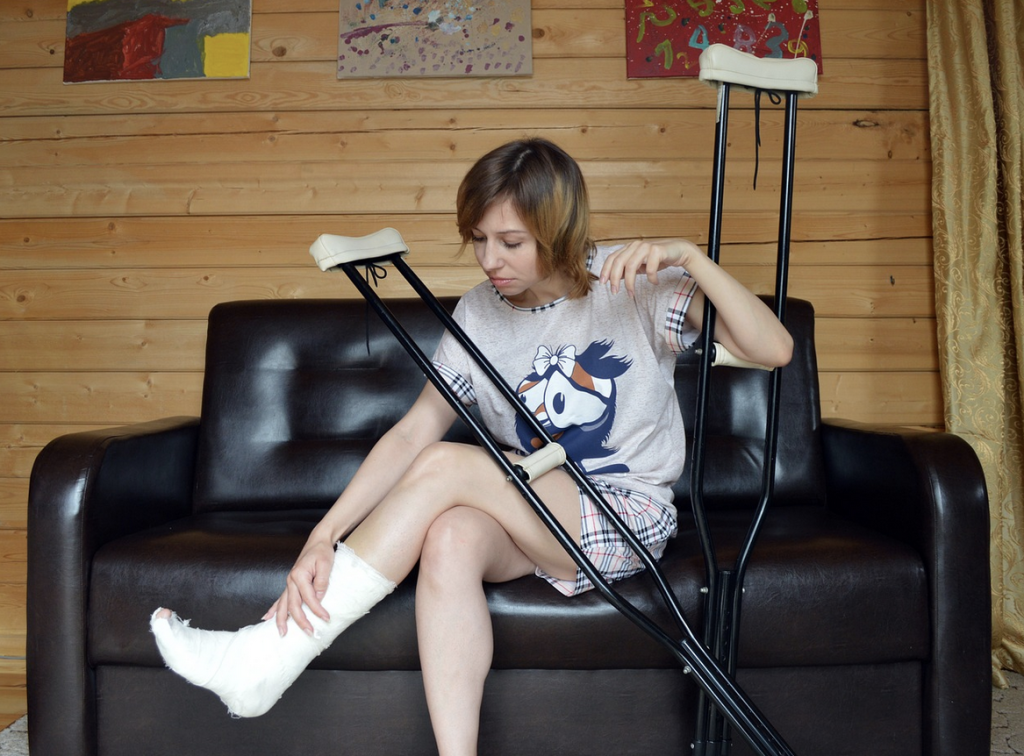When a family member suffers a personal injury, it can be a life-changing event not only for them but also for everyone close to them. Personal injuries often bring physical pain, emotional stress, and financial burdens, creating a need for a strong support system. As a loved one, your role is crucial in helping them navigate this challenging time, but knowing how to provide meaningful support isn’t always straightforward.
This guide will explore actionable steps you can take to help a family member recover from a personal injury, focusing on emotional, physical, and logistical support.

Helping Navigate the Legal Process
One of the most overwhelming aspects of a personal injury is dealing with the legal implications. The injured person may face medical expenses, lost income, and challenges in negotiating with insurance companies. As a family member, assisting them in seeking legal guidance can be an invaluable contribution to their recovery process. By contacting Edwards Law Office, P.C., or another reputable firm, you can help your family member secure the legal expertise they need to navigate their case. Personal injury attorneys specialise in advocating for injured individuals, ensuring they receive fair compensation for their losses. Whether it’s filing claims, gathering evidence, or negotiating settlements, having professional legal representation can significantly ease their burden and allow them to focus on healing.
Your support may include researching law firms, attending consultations, or simply being present during discussions to provide moral support.
Providing Emotional Support
Recovering from a personal injury often involves emotional challenges such as anxiety, frustration, and even depression. Your family members may feel overwhelmed by the sudden change in their circumstances, making emotional support a vital part of their recovery journey.
Listening without judgment is one of the most effective ways to provide emotional support. Encourage your loved one to express their feelings and concerns, and acknowledge their emotions without trying to “fix” the situation. Sometimes, simply being there for them and offering a shoulder to lean on can make a significant difference.
If their emotional struggles persist, consider suggesting professional counselling or therapy. Mental health professionals can help them develop coping strategies and provide a safe space to process their emotions.
Assisting with Daily Activities
Personal injuries can limit a person’s ability to perform everyday tasks, such as cooking, cleaning, or running errands. Assisting with these responsibilities not only helps alleviate stress but also allows your family members to focus on their recovery.
Start by identifying specific areas where they need help. For example, they may need assistance with grocery shopping, meal preparation, or transportation to medical appointments. Offering to take on these tasks can significantly ease their workload and prevent them from feeling overwhelmed.
If your loved one has mobility challenges, consider making temporary adjustments to their living environment, such as rearranging furniture for easier access or installing safety equipment like grab bars or ramps.
Encouraging Proper Medical Care
Adhering to a medical treatment plan is critical for a successful recovery. However, some individuals may feel discouraged or frustrated by the time and effort required for treatments, leading them to skip appointments or neglect their health.
As a family member, you can encourage your loved one to prioritise their medical care. Offer to accompany them to doctor visits, physical therapy sessions, or follow-up appointments. This not only ensures they attend but also provides an opportunity for you to stay informed about their progress and offer encouragement.
You can also help them organise medical records, schedule appointments, and track medications or therapy regimens. Staying proactive about their care ensures that they have the best possible chance of a full recovery.
Addressing Financial Challenges
Personal injuries often come with significant financial strain due to medical bills, lost wages, and other expenses. These challenges can create additional stress for your family member, making financial assistance a valuable way to support them.
If you’re in a position to help financially, consider contributing to medical costs or assisting with household expenses. If that’s not feasible, explore other options such as helping them apply for financial aid, negotiating payment plans with healthcare providers, or researching local support programs.
Encouraging them to work with an attorney can also help address financial concerns. Legal professionals can often secure compensation for medical expenses, lost income, and other damages, reducing the financial burden on your loved one.
Promoting a Positive Outlook
Maintaining a positive outlook during recovery can be challenging, but it’s an essential part of the healing process. As a family member, you can help foster optimism and resilience by celebrating small victories and reminding your loved one of their progress.
Encourage them to set realistic goals and focus on what they can control. For example, if they’re undergoing physical therapy, acknowledge their hard work and the improvements they’re making, no matter how small. Positive reinforcement can boost their motivation and confidence, helping them stay committed to their recovery plan.
Engaging in enjoyable activities together, such as watching a favourite movie or spending time outdoors, can also provide a welcome distraction from the stress of their injury.
Taking Care of Yourself
Supporting a loved one through a personal injury can be physically and emotionally demanding. To provide effective care, it’s essential to prioritise your own well-being as well.
Take time to rest, maintain a healthy lifestyle, and seek support from friends, family, or support groups if needed. Remember that it’s okay to ask for help or delegate tasks to others. By taking care of yourself, you’ll be better equipped to support your family member without experiencing burnout.

Supporting a family member who has suffered a personal injury requires patience, compassion, and a proactive approach. From helping them navigate the legal process to providing emotional support and practical assistance, your role is crucial in their recovery journey.
Offering help with daily tasks, encouraging proper medical care, and promoting a positive outlook can make a significant difference in their overall well-being. Recovering from a personal injury is often a long and challenging process, but with a strong support system in place, your family member can face these challenges with confidence and resilience. Together, you can help them rebuild their life and achieve a full and meaningful recovery.



